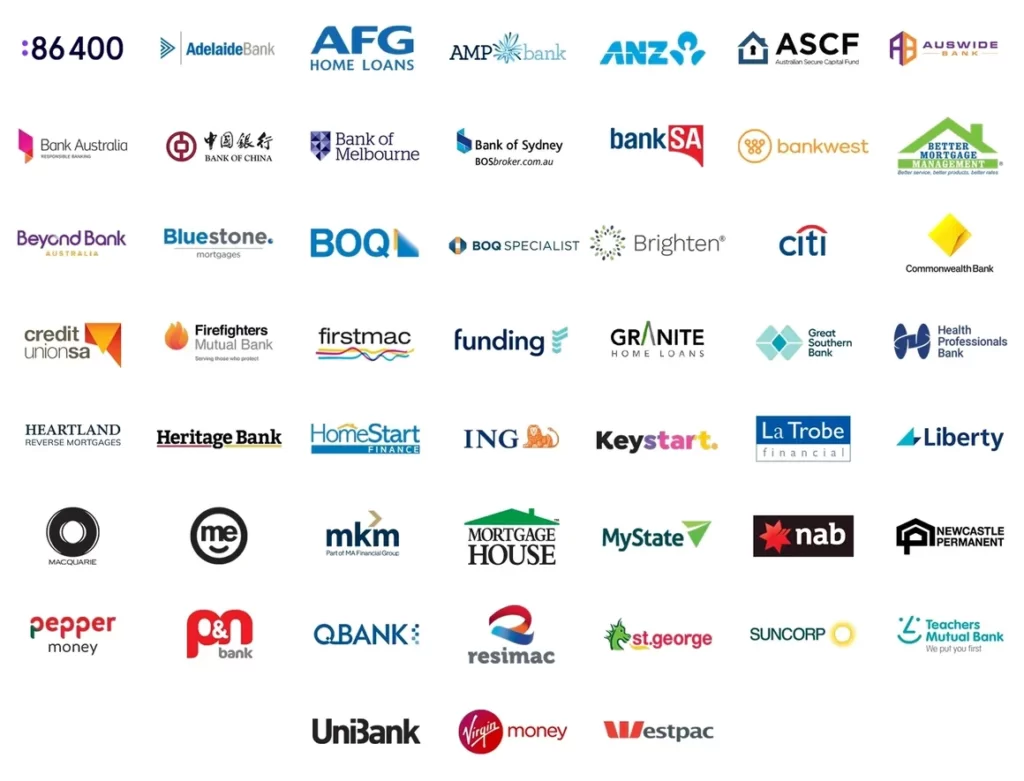No Deposit Home Loans
Realize your homeownership dreams faster with our no-deposit home loans. We’ll assist you in acquiring your ideal home with a minimal down payment of only 5% of the property’s value.

One significant challenge in the journey of home buying is accumulating the necessary funds for a down payment. Nevertheless, it is possible to secure approval for a home loan even with minimal or no down payment.
The majority of lenders stipulate the obligation of paying Lenders Mortgage Insurance (LMI) if your borrowing exceeds 80% of the property’s value. We have detailed strategies to help you attain approval for a home loan when you have a low or no deposit.
Zero-Deposit Home Loan Alternatives
Option 1: 105% Guarantor Loan
In Australia, the 105% guarantor loan stands out as the most favorable choice for securing a home loan without a deposit. With this type of loan, a guarantor, often your parents, pledges their property as collateral, enabling you to borrow without requiring a deposit.
Key Features:
- You can borrow up to 105% of the property’s purchase price.
- There’s no need for you to have any savings in advance.
- Your parents or another designated guarantor must furnish a guarantee backed by their own property.
Eligibility Criteria:
- Your guarantor must possess sufficient equity in their property to cover the guarantee.
- Typically, your guarantor, often your parents, should be actively employed; a few lenders may consider retired guarantors.
- The guarantor’s property must be located within Australia.
Why Opt for a Guarantor Home Loan?
For Borrowers: No-deposit loans have emerged as an appealing choice for individuals who lack the financial means to contribute to a mortgage down payment. With this option, you can secure the entire purchase amount, along with funds for expenses such as stamp duty, without the necessity of Lenders Mortgage Insurance (LMI), resulting in substantial savings. Moreover, these loans often come with highly competitive interest rates.
For Guarantors: Guarantors assume a well-defined liability and can only be held accountable for the guaranteed amount, rendering this a more secure alternative. The guarantee can be backed by either their property or a term deposit.
Guarantors are not obligated to make regular loan repayments, and the guarantee can be released upon request if, at a later stage, the borrower meets the standard bank requirements and obtains approval from the bank. Typically, this happens when the borrower’s outstanding loan balance falls below 80% of their property’s value.
Utilize Home Equity as Your Deposit
If you’re already a property owner, some lenders will consider your home equity as a valid deposit.
Key Benefits:
- No need for additional savings if you have ample equity.
- You can transform your existing equity into a deposit through refinancing.
- Certain lenders may even provide cash incentives when you choose to refinance.
- Get a complimentary property valuation right away! To find out if you qualify, simply contact us at 1300 401 847 or submit an online inquiry, and we’ll assess your eligibility.
In case you do not meet the requirements for these zero-deposit home loan alternatives, explore the available low-deposit options.
Low-Deposit Home Loan Alternatives
First Home Guarantee
The First Home Guarantee program is a nationwide initiative aimed at assisting first-time homebuyers in acquiring a property with a down payment as low as 5%, all without the burden of Lenders Mortgage Insurance. This opportunity is available from July 1, 2023, to June 30, 2024, with 35,000 spots open.
Key Points:
- A minimum deposit of 5% is required, typically accumulated through genuine savings.
- Eligibility extends to single first-home buyers earning up to $125,000 annually and couples with a combined income of up to $200,000. The definition of a couple now encompasses family members or two friends sharing a home.
- This scheme includes single parents with at least one dependent child and legal guardians such as aunts, uncles, and grandparents.
- To qualify, you must intend to occupy and live in the property as your primary residence (i.e., it’s for owner-occupiers).
- Applicants must be Australian citizens or permanent residents. Further details can be found on our First Home Guarantee page.
Gifted Deposit Home Loan
Your parents can offer you a no-strings-attached lump sum gift, which you are not obligated to repay.
Key Features:
- Parents can gift you 5% to 15% of the property’s purchase price as a non-refundable gift.
- Some lenders may consider your loan even if you did not save the deposit yourself.
- Approximately 60% of first-time homebuyers receive parental assistance. For additional information, explore our no genuine savings or gifted deposit page.
Personal Loan as a Deposit
Using a personal loan as a home deposit is possible, though not favored by many lenders due to the need to manage repayments for both the personal loan and home loan.
Prerequisites:
- A minimum deposit of 5% of the property’s value.
- A substantial income is necessary.
- You can borrow up to 95% of the purchase price, including the personal loan.
- Existing debt should not exceed $10,000.
- A clean credit history is essential. This option may not be suitable for everyone. It is advisable to discuss a guarantor loan with your parents before considering this choice. Learn more on our personal loan as a home deposit page.
Using Superannuation to Purchase a Property
- Do you possess over $300,000 in superannuation?
- Are you interested in buying for investment purposes rather than occupancy?
- You can establish a self-managed superannuation fund (SMSF) for property acquisition.
- Borrow up to 80% of the purchase price.
- Superannuation acts as the deposit, eliminating the need for personal savings.
Please note that this approach is strictly for investment properties and cannot be used for personal residence. The property must be acquired in the name of your SMSF, not your individual name. Seeking financial advice is essential before pursuing this complex strategy. To assess your eligibility, refer to our buying property in an SMSF page.
Still unsure? We’ve developed a no-deposit home loan calculator to assist in choosing the most suitable option when purchasing a house without a deposit.
Apply for a Shared-Equity Scheme
A shared-equity scheme involves an equity partner who serves as both lender and investor in a property. The partner contributes a portion of the property’s purchase price in exchange for a stake in the property. Most shared-equity schemes require a minimum deposit of 5% of the property price.
Various shared-equity schemes and arrangements are available in Australia.
- Under the nationwide Help To Buy scheme, the government contributes 40% for new builds and 30% for existing properties.
- Additionally, state and territory-wide schemes are accessible.
Advantages and Disadvantages of No-Deposit Home Loans
No-deposit home loans come with various advantages and disadvantages, which are contingent upon individual financial situations, the broader economic climate, and the specific loan terms and conditions.
Pros:
- Accessibility: This type of loan opens the doors to the property market without the necessity of accumulating a substantial deposit, making homeownership attainable for those with limited savings.
- Faster Homeownership: Eliminating the need for a deposit can expedite the home buying process, enabling buyers to become homeowners sooner.
- Investment Opportunities: Some individuals use no-deposit loans to invest in property earlier, potentially benefiting from property appreciation.
- Potential Government Assistance: Government grants or incentives may be available for first-time buyers, which can be combined with no-deposit loans.
Cons:
- Stricter Eligibility Requirements: Lenders often demand a pristine credit history, stable employment, and proof of financial responsibility.
- Limited Lender Options: No-deposit home loans are not universally offered, restricting the pool of available lenders.
- Heightened Risk of Negative Equity: Should property values decline, you could find yourself owing more on the mortgage than the property is worth since you began without equity.
- Potential for Over-Borrowing: Without a deposit to set a financial limit, there’s a temptation to borrow beyond one’s means, potentially leading to financial strain in the future.
Getting Approved for a No-Deposit Home Loan: Lending Criteria
Lenders evaluate various factors when assessing your no-deposit home loan application. These factors include:
- Credit History: A flawless credit history with Equifax is a must, and no exceptions are typically made by Australian lenders if Lenders Mortgage Insurance (LMI) approval is necessary.
- Repayment History: Timely payment of current debts, such as credit cards, personal loans, and rent, is crucial.
- Location Restrictions: The property must be located in a major town, capital city, or regional center. While some lenders may consider properties anywhere in Australia, most adhere to strict location criteria.
- Property Type: Standard property types, such as houses, townhouses, units, or vacant land, are generally acceptable. Unique or unconventional properties are often not approved.
- Stable Employment: Demonstrating stable and ongoing employment is essential.
- Income: Your income should be sufficient to comfortably service the loan. Borrowing up to the maximum limit with a high Loan-to-Value Ratio (LVR) mortgage is usually not recommended.
- Profession: Certain professions, including accountants, lawyers, doctors, veterinarians, nurses, government employees, and teachers, are preferred by lenders due to their lower risk profiles. However, you don’t necessarily need to be in these professions to secure approval. Unsure about your eligibility for a 100% home loan? Contact us at 1300 401 847 or submit an online inquiry for a free assessment today.
Do You Need Savings for a No-Deposit Home Loan?
If you have a guarantor, there’s no need for personal savings to secure a no-deposit home loan. In all other circumstances, saving 5% to 10% of the property’s price is typically required.
| Type of Borrower | Deposit Required and Additional Information |
|---|---|
| First-Home Buyer | – 5% deposit is typically required. – Utilize the First Home Owners Grant for covering property purchase costs. – First-home buyers may benefit from stamp duty concessions or exemptions. – Consider a guarantor for securing loans with no deposit. |
| Second-Home Buyer | – Generally, a 10% deposit is expected. – Be prepared to cover expenses such as stamp duty and conveyancing. – Explore options like gifted deposits or leveraging equity from your first home. |
| Investors | – A 10% deposit is customary for investors. – Note that government grants and stamp-duty exemptions are generally not available to investors. |
| Building a Property / Construction | – The required deposit may vary, as construction financing occurs in stages. – It is advisable to have additional savings to accommodate potential budget overruns. |
A bad credit home loan is a mortgage option designed for individuals with a less-than-ideal credit history. These loans are tailored to accommodate borrowers who have experienced credit issues in the past, such as defaults, bankruptcies, or missed payments.
Qualification criteria can vary, but generally, bad credit home loans are available to individuals who can demonstrate their ability to make repayments on the loan, despite past credit challenges. Lenders typically assess factors like income, employment stability, and the severity of past credit issues.
Interest rates for bad credit home loans are typically higher than those for standard mortgages. The specific rate can vary based on the lender, the borrower’s credit history, and other factors. Borrowers should be prepared for higher interest costs.
Yes, it’s often possible to refinance a bad credit home loan once you’ve improved your credit score. As your credit improves and you demonstrate a strong repayment history, you may become eligible for a standard mortgage with a lower interest rate.
To enhance your approval prospects, focus on making timely repayments on existing debts, communicate with creditors, and consider resolving outstanding defaults. Consulting a specialist mortgage broker experienced in bad credit home loans can also be highly beneficial.
While there are no specific government programs exclusively for bad credit home loans, some state and federal initiatives aim to support first-time homebuyers, which may indirectly benefit those with credit challenges. These programs often provide financial assistance and reduced stamp duty or grant concessions for eligible buyers.
Related Topics
Why Choose Clear Pacific Capital?
Our Services
Our Approach to Finding the Ideal Solution for You
We begin by gaining a comprehensive understanding of your current circumstances and your long-term objectives. Our process is designed to provide you with a tailored recommendation, and it's as simple as following these few steps:
1
Start by filling out our free assessment form or giving us a call.
2
Our team will carefully evaluate your unique financial situation.
3
We thoroughly examine the various options available through our network of trusted lenders.
4
The end result? We'll pinpoint the most fitting and advantageous home loan offers for you.
Clients Love
Testimonial
Highly recommended. Irfan is an incredibly knowledgeable and professional broker. Irfan was able to help us every step of the way in our journey to buying our first home.






